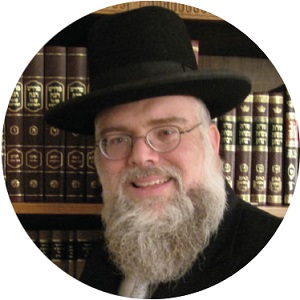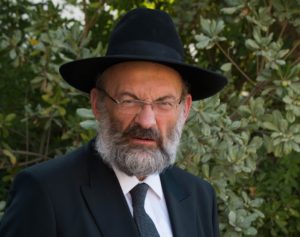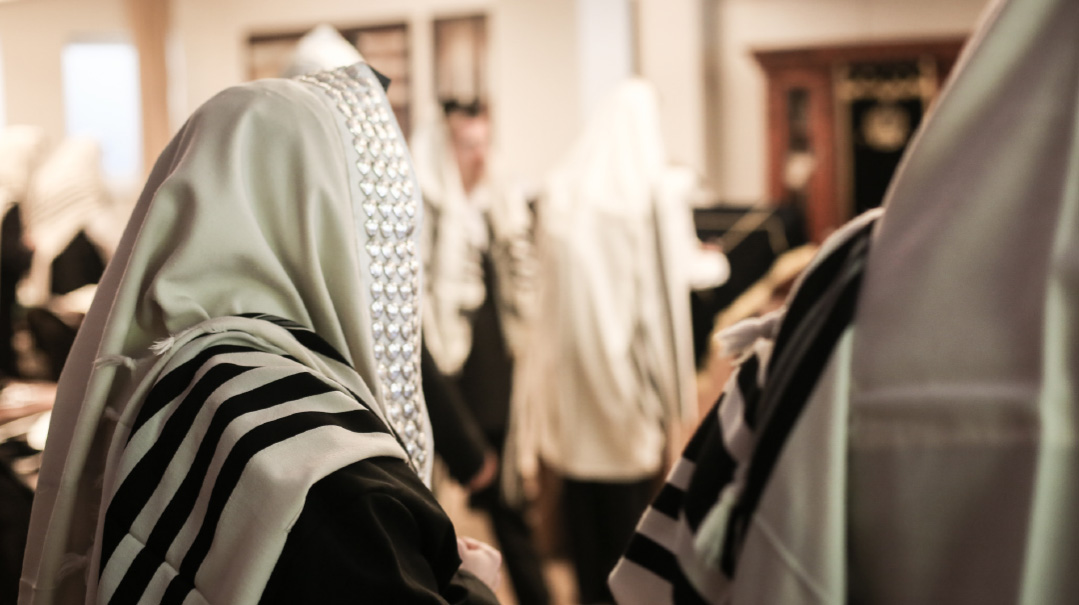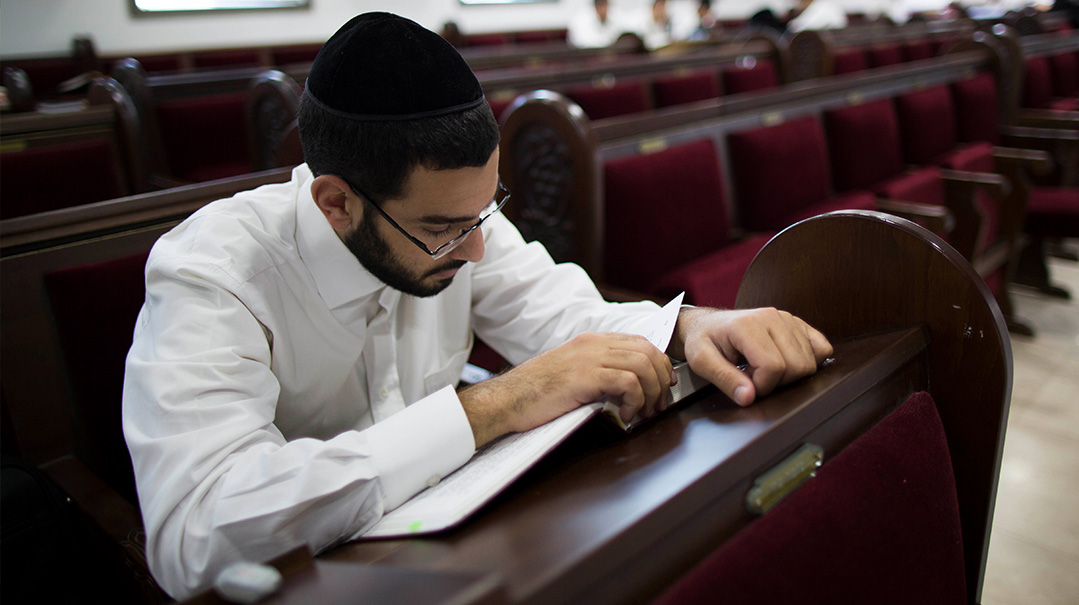Showdown at the Lodge


I
t was one of those eye-opening moments that changed my perspective forever.
Before Pesach as we were preparing for our grandchildren’s arrival (and their parents’ too) we were short one car seat. We were offered a loaner from our niece who lives in our neighborhood and whose children had already graduated to boosters. I was directed to the basement where the children were playing and would show me my options. The big girl all of six years old dissuaded me from my first choice informing me that the buckle came apart too easily and was not so safe. Her little brother the mature four-year-old recommended the one with the built-in cupholder so my einekel would be able to help herself to a drink at will. I made my decision and brought home my choice.
After I shared this conversation at home a light went on. I was getting tried-and-true advice from these two children who truly were subject-matter experts possessing firsthand experience with the pros and cons of the world of car seats. How could I know anyway? (When I was their age you simply dumped the kids somewhere in the back sans seatbelt and all.)
Then it hit me. We adults are constantly making decisions on behalf of our younger charges: where and with whom they play; where they go to school; and how they occupy their time with extracurricular activities among other life choices we make for them all according to what we think is best for them. We do not usually have the luxury of or need for their input — after all we know best. Or do we? Although we cannot possibly think like four-year-olds (nor should we) we need to realize that they don’t think like us either. What we think they need or want is not necessarily what they truly need or want. The more we attempt to try to understand their actual needs and wants and factor them into our decisions the better chance we have to succeed in nurturing them.
I was recently privileged to be the guest of an institution-within-an-institution — the Bais Yaakov ofToronto’s annual retreat known simply as “Lodge.” The girls spend an intensive yet relaxed Shabbos somewhere in the hinterlands ofOntarioto learn to bond and to leave more inspired than before they came.
As part of the theme of “kedoshim tiheyu” I gave a class late Friday night after the seudah to the seniors on the topic of living and dying al kiddush Hashem. I had been forewarned to be ready for questions even tough ones for these are thinking girls. I opened with what I thought was an uncontroversial yet powerful insight I had personally heard mipi kadsho of Rav Avrohom Pam ztz”l. The Torah tells us “V’lo sechallelu es Sheim Kodshi v’nikdashti b’soch Bnei Yisrael — do not profane my Holy Name and I will be sanctified among Bnei Yisrael” (Vayikra 22:32).
Is there nothing Rav Pam asked in between? Is everything either a chillul Hashem or a kiddush Hashem? The answer is a resounding “Yes!” Everything you do is either one or the other. Nothing in life is pareve. Clearly not every private performance of a mitzvah would seem to rank in the same category as public displays of kiddush Hashem as we are accustomed to using that expression but on some level every single thing we do must be part of the same grand scheme of chillul or kiddush Hashem. A daunting mandate indeed.
As if on cue a firestorm ensued. One of the talmidos raised her hand and respectfully asked “How is sitting in biology class a kiddush Hashem — and what if I space out in the middle?” Yet another wondered “How is choosing between oatmeal and corn flakes for breakfast part of a kiddush Hashem?” “How about spending five hours in the mall on a Sunday afternoon?”
The floodgates were open.
The material I had prepared to discuss with the girls was going to have to take a back seat. One question led to the next until long after my presentation was over. The give-and-take was exhilarating the answers perhaps satisfactory for some not so much for others. But they were asking! Apparently a nerve was touched and the curiosity came pouring out. To them this was very important way more important than I would ever have imagined. Their questions flowed from their deeper unspoken questions: Am I perfect enough? What type of relationship do I have with Hashem? Does my relationship with Hashem allow me downtime? When can halachah bend in the spirit of eis laasos?
This scene repeated itself this past summer when I was invited to conduct a panel along with an experienced kiruv veteran in Camp Agudah Midwest’s girls’ session. They were encouraged to ask away sometimes drifting from the assigned topic of “Torah authority ” but expressing their relief that they were allowed and encouraged to ask. Many of them from schools acrossAmerica indicated that they feel inhibited from asking the types of questions that are on their minds or even put down or mocked for raising them when they do.
Undoubtedly there are many wonderful mechanchim and mechanchos in our schools who welcome questions and take the responsibility of giving their students the tools to develop a relationship with the Ribbono shel Olam very seriously. There may be multiple reasons that students are reluctant to ask questions and in some cases the students may never have even tried due to their fear that their question will not be taken seriously or that asking the question will affect their teacher’s opinion of them.
Whatever the reasons for students holding back the very perception that teachers do not want to field their questions will think less of them for having asked or don’t know the answers themselves and are too embarrassed to admit it creates a very unhealthy atmosphere. “Lo habaishan lamad ” Pirkei Avos teaches — certainly we cannot squelch our seeking charges to the point of bushah or worse. Our classrooms and homes need to be welcoming places for our children’s questions and curiosity lest they look elsewhere or nowhere at all feeling an emptiness that can chalilah plant seeds for abandonment altogether Rachmana litzlan. This is not my conjecture rather what I have heard from them. Teachers and schools must foster a culture where questions are welcome and not assumed to be a sign of hidden apikorsus. Every school can have its own approach (encouraging teaching to allow “discussions ” establishing “yemei iyun” to explore concepts crucial to building strong hashkafos or inviting guest speakers whom the student may be less inhibited to open up to as only a few examples) but this issue cannot be swept under the carpet.
I recalled my parting conversation with my rebbi Rav Elya Svei ztz”l before I left yeshivah for the last time. I was invited into his office and was taken aback by his opening remark: “Ask me whatever you want.” I had three precious hours a veritable kid in a candy store although I felt like I left my wallet at home. Had I only known the chance I was being given in advance! But maybe it was better that way because my unfiltered self just asked from the hip the types of things that under other circumstances I may not have had the courage to bring up.
Although most of that conversation will remain in the sanctuary of my heart one thing stood as my lifeline throughout the years. I asked “What am I going to do now away from my rosh yeshivah who knows me better than I know myself thousands of miles away?”
He simply replied “You can always call with whatever you want.”
That was all I needed to hear. Someone will be there to answer my questions my problems my dilemmas. I got the message that no matter how excellent the yeshivah or outstanding the faculty students will have questions that no one would ever imagine are bothering them and will encounter problems that could not have been anticipated.
Teenagers especially as they navigate their new world need addresses where their questions can be answered their fears allayed and their concerns spoken out. The last thing they need is a stifling environment where “we don’t ask those things” is the common refrain rather than “that’s a good question let’s discuss it.”
We must try to create an environment where our talmidim are able to broach questions that are important to them: What makes goyishe music unacceptable? Where is the line between looking bekavodig and being too involved in clothing? What’s wrong with hero worship of singers (even Jewish ones) or athletes? No question should be mocked when a talmid is grappling with making sense of his world. We need to be aware that abhorrent social values are finding their ways into even our finest yeshivos and talmidim are struggling with how to deal with them. Allowing them to ask about the questions that are important to them is a lifeline. And so are honest answers.
I had my agenda that I thought was important for the session with the seniors and it probably was. But much more important was hearing what was on their minds and what is really important to them. Just like “Don’t take the car seat with the weak buckle it’s too unsafe ” they might really have a much better insight on the threats to the safety of their neshamos. Their perspective is their real world. And whether or not we are prepared or want to admit it they are wondering how all the decadence of this new world we live in is supposed to be dealt with.
We must truly understand where they are coming from the sources from which they are being fed information and how to guide them b’ruach haTorah. But first and foremost invite them to ask and engage them accordingly. That might not sound very trailblazing to some of us but ask any number of our young adults why they are asking “now ” and they will tell you because nobody would answer them before. And before snapping back with “Why are you interested in this stuff?” try “It’s a tough question what prompted that now?” You’ll have a much more receptive audience.
So the next time you go shopping for a car seat or booster make sure it has GPS. Your child may want to know where he is going.
Rabbi Henoch Plotnik is the mara d’asra of Congregation Bais Tefila and a ram in Yeshivas Meor HaTorah inChicago.
Oops! We could not locate your form.












